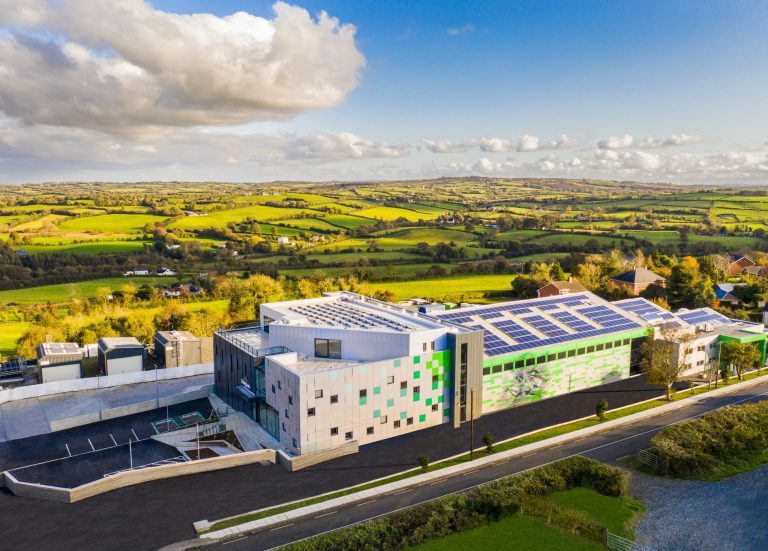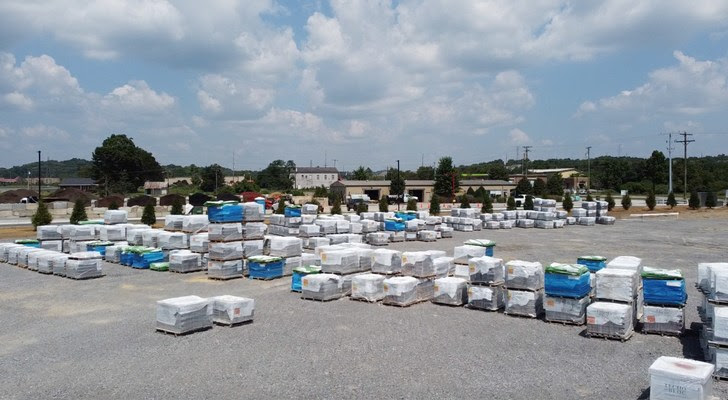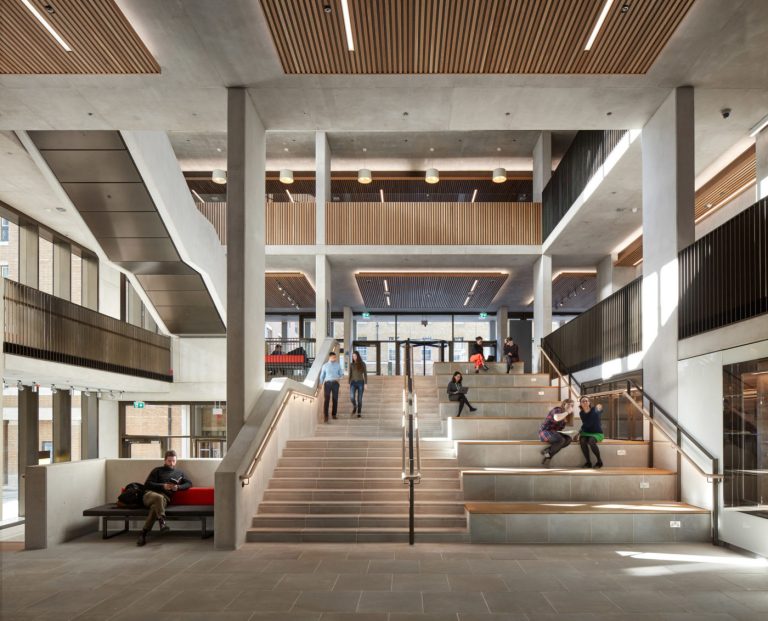Nottingham Trent University’s (NTU) new centre for enterprise and innovation has become the latest higher education facility in the UK to feature state-of-the-art cladding panels from Proteus Facades. With higher education providers realising that the design, amenities and external aesthetics of campus buildings are just as important as the courses and educational services on offer to students, specifiers are making more use of alternatives to traditional bricks and mortar. It is one of the reasons why architects specified contemporary mirror finish and mesh cladding from Proteus Facades for the state-of-the-art new £9 million Dryden Enterprise Centre (DEC) at NTU. Designed by architects Evans Vettori and constructed by main contractor Henry Brothers, the DEC provides staff, students, graduates and external businesses with increased access to a range of high-class facilities, as well as support, mentoring, networking and training services. The new building has been developed alongside the existing Dryden Centre, a cube-like structure built on campus in 1976 that has undergone extensive refurbishment as part of the development. The new extension connects to the north end of the refurbished structure, both of which have been designed to accommodate University start-ups and spin-outs and attract external businesses looking for high-quality workspaces and support. Proteus Facades manufactured bespoke Proteus SC Aluminium 3mm Aluminium PPC Carina expanded mesh and Proteus HR 0.8mm Rimex Super Mirror 316 Stainless Steel rainscreen soffit panels for the refurbished and new structures respectively. Proteus SC is an engineered panel system that is offered in either solid, perforated or mesh panel formats. By utilising an extensive range of metals, colours, textures and forms it can add another dimension to any façade cladding project. The system can be manufactured between 1mm and 5mm in thickness and an acoustic insulation layer encapsulated within the panel. The Proteus SC panels at the DEC were specified with a PPC Pearl Beige (RAL 1035) finish and feature on the external façade of the 1970’s cube-like structure. Compartmentalising the brick-work at eye-level, the mesh cladding features in vertical sections reaching from the ground to the upper floors and then wrap around the entirety of the top level. The panels were chosen to soften the block-like appearance of the refurbished structure and complement the elegant pearl, brick and glazed sections on the façade of the new development. Proteus HR soffit panels in Rimex Super mirror finish feature on the underside of four of the first and third floor cantilevers, reaching over the main entrance and upper terraces. The mirrored cladding from Proteus was specified due to its honeycomb core creating an optically flat panel that portrays a high quality surface aesthetic. The finish also has the effect of reflecting artificial lighting from within the building and natural light from outside onto the floors below. It achieves what the architects set out to do and that is illuminate what may have otherwise been a deeply shaded area of the building. Proteus HR was also specified because it is a lightweight, strong and versatile cladding panel. The integrated modular rainscreen panels feature an aluminium honeycomb core, structurally bonded between two thin gauges of lightweight metal skin for optimum rigidity. Installed by Elhance Limited, both the Proteus SC and HR panels at the DEC are secured in place using a bespoke aluminium fixing system, also manufactured by Proteus Facades. It can be installed on to any type of wall construction and allows the panels to be secured in place with no visible fixings, creating a sheer, uninterrupted aesthetic. The £9m Dryden Enterprise Centre (DEC) is set over four floors utilising the latest technology and modern facilities including open-plan desk areas, private offices, meeting rooms, event space and communal areas to encourage networking. Proteus Facades’ innovative rainscreen cladding panels utilise an extensive range of materials such as Aluminium, Copper, Bronze, Brass, Stainless Steel, Zinc and Porcelain Ceramic. Each system is manufactured to internationally recognised quality standards, using the highest quality materials, in accordance with its BSI ISO accredited Business Management System for Quality, Environmental and Health & Safety. For further information about the wide range of rainscreen cladding systems available from Proteus Facades or to view more inspirational projects, visit: www.proteusfacades.com or call: 0151 545 5075.













